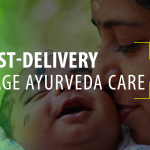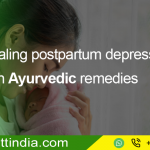Polycystic Ovary Syndrome (PCOS) is a common hormonal disorder that affects many women and girls of reproductive age. Recently, it has become clear that PCOS can also appear in teenage girls. Understanding PCOS, its symptoms, and how it is diagnosed is essential for managing this condition effectively. In this article, we will explore what PCOS is, the symptoms to look out for, and how doctors diagnose it in teenage girls.
What is PCOS?
PCOS is a condition that affects the ovaries, which are the reproductive organs responsible for producing eggs and hormones like estrogen and progesterone. In girls with PCOS, the ovaries may produce excess androgens, often referred to as male hormones. This hormonal imbalance can lead to various symptoms, which we will discuss in detail.
Symptoms of PCOS in Teenage Girls
Identifying the symptoms of PCOS early can help girls receive the necessary treatment. The following are typical signs to be aware of:
Irregular Menstrual Cycles
Intermittent menstruation is one of the most obvious symptoms of PCOS. Teenage girls may experience:
- Missed periods: Some girls may not have a period for several months.
- Heavy bleeding: When periods do occur, they can be unusually heavy.
- Short cycles: Some girls may have periods that occur more frequently than usual.
These irregularities occur due to the hormonal imbalances that affect the menstrual cycle.
Weight Gain
Many girls with PCOS may notice unexpected weight gain, especially around the abdomen. This may be upsetting and detrimental to one’s self-worth. Weight gain is often linked to insulin resistance, a common issue in PCOS. Insulin resistance means the body does not use insulin effectively, leading to increased fat storage.
Excess Hair Growth
Excessive hair growth, or hirsutism, is another typical PCOS symptom. Girls may find that they develop dark, coarse hair on areas like:
- The face (chin and upper lip)
- The chest
- The abdomen
- The back
This condition can be distressing, as it may not align with societal beauty standards.
Acne and Oily Skin
Many teenagers experience acne, but for those with PCOS, the condition may be more severe. Increased levels of androgens can lead to:
- Oily skin
- Clogged pores
- Frequent breakouts
Teenage girls with persistent acne that does not respond to typical treatments should consider talking to a doctor.
Thinning Hair
While some girls experience excessive hair growth, others may notice thinning hair or hair loss on their scalp. This condition, known as androgenic alopecia, can be distressing and affect self-image.
Mood Changes
Hormonal imbalances can also impact mood. Girls with PCOS may experience:
- Increased anxiety
- Mood swings
- Depression
These emotional challenges can be just as significant as physical symptoms.
Skin Changes
PCOS can lead to various skin issues, including:
- Dark patches of skin (acanthosis nigricans), often found in skin folds like the neck or underarms.
- Stretch marks, which can develop from rapid weight gain or hormonal changes.
Difficulty Getting Pregnant
While many teenage girls are not thinking about pregnancy, it’s worth noting that PCOS can affect fertility later in life. Irregular ovulation makes it challenging to conceive, and early diagnosis can help with future family planning.
Diagnosing PCOS
If a teenage girl experiences any of the symptoms mentioned, it is crucial to consult a healthcare provider. PCOS diagnosis usually entails a mix of the following:
Medical History
Taking a thorough medical history is the first step the doctor will take. This includes:
- Discussing menstrual cycles
- Noting any symptoms such as weight changes, hair growth, or skin issues
- Reviewing family history, as PCOS can run in families
Physical Examination
A physical examination will often be performed to assess overall health. The doctor may check for:
- Signs of excess hair growth
- Acne
- Weight changes
- Blood pressure and body mass index (BMI)
Blood Tests
Blood tests are crucial for diagnosing PCOS. These tests may include:
- Hormone level tests to check for elevated androgen levels
- Glucose tolerance test to assess insulin sensitivity
- Lipid profile to measure cholesterol and triglycerides
These examinations support the diagnosis and rule out alternative illnesses.
Treatment Options
Once diagnosed, managing PCOS is vital to reduce symptoms and improve quality of life. Treatment options may include:
Lifestyle Changes
- Diet: Adopting a healthy, balanced diet can help manage weight and insulin levels. Focus on whole foods, such as fruits, vegetables, whole grains, and lean proteins.
- Exercise: Regular physical activity can improve insulin sensitivity, help with weight management, and reduce symptoms of anxiety and depression.
Regular Check-ups
Seeing a doctor on a regular basis is crucial for tracking symptoms and making any therapy adjustments. Keeping track of menstrual cycles, weight, and any new symptoms is crucial for effective management. Get Ayurveda treatment in Kerala.

Call +91 9072344343 for Ayurveda Treatment in Kerala
PCOS can be a challenging condition for teenage girls, but early diagnosis and treatment can significantly improve quality of life. Understanding the symptoms is the first step in seeking help. If a girl is experiencing any signs of PCOS, it is important to talk to a healthcare provider. They can provide guidance, support, and treatment options to help manage the condition effectively. With the right care, teenage girls with PCOS can lead healthy, fulfilling lives.








